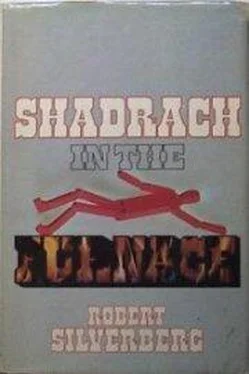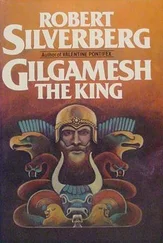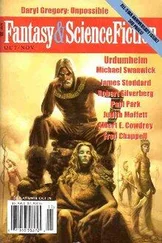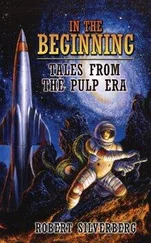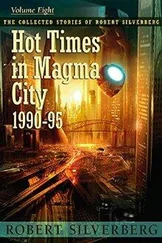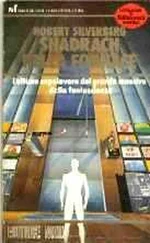Two burly aides lift Genghis Mao’s short, slight figure onto a gurney and the familiar trip from the imperial bedchamber to the operating table commences. The Khan is cheerful, feverish and frail and beady-eyed though he looks; he nods and winks to the aides as they position him, telling them that he is comfortable; he chuckles, he even essays a quip or two. Mordecai is astounded, as always, by the Khan’s incredible calmness at such a moment, as evidenced by the telemetered data reaching his implanted sensors. Surely Genghis Mao knows that there is a significant chance of his dying during the operation, but his somatic output registers no apparent awareness of that — as though the Chairman’s spirit is so neatly balanced between love of life and hunger for death that it floats in perfect metabolic equilibrium. At any rate Shadrach is much less relaxed than his employer, perhaps because he regards the risks of a liver transplant operation as distinctly nontrivial and is far from ready to confront the personal uncertainties of a post-Genghis Mao world.
On silent pneumatic treads the gurney bearing the Chairman glides from the imperial bedchamber to the imperial office, thence via the private dining room into Shadrach Mordecai’s office, and — after an eternity of suspicious scanning — through Interface Five into the Surgery. This is a magnificent tetrahedral enclosure extending through the uppermost two stories of the Grand Tower of the Khan and subtending some thirty degrees of arc along the skin of the elongated conical building. A cruciform cluster of chromed fixtures at the room’s summit floods it with brilliant but not glaring light. A platform midway between floor and ceiling juts from the wall opposite the interface, dividing the great room almost in half on its far side, and atop this platform rests the dazzling aseptic transparent bubble within which the actual surgery is performed; beneath the platform that supports the bubble is the surgical stage’s environment-support apparatus: a huge sinister hooded cube of dull green metal, housing what Mordecai imagines to be pumps, filters, heating ducts, reservoirs of sterilizing chemicals, humidifiers, and other equipment. On the other side of the room is a ziggurat of supplementary machinery rising step by step on smooth blue-green benches for some thirty meters — a squat brick-colored power unit at the bottom, an array of metering devices, an autoclave, a laser bank, the anesthesia console, a camera boom and associated playback screens to enable consulting doctors to follow the events inside the bubble, and much other materiel, some of it wholly baffling to Mordecai.
He does not need to understand what functions all this equipment serves. He will perform no actual surgery. His role in the operation is as part of the auxiliary equipment — for, with his capability to monitor, evaluate, and report on the moment-by-moment physiological changes within Genghis Mao’s body, he is a kind of supercomputer, far more supple and perceptive than any medical machine could be. The Chairman’s condition will, of course, be monitored by the usual machinery as well (redundancy is our main avenue . . .) but Shadrach, standing at Warhaftig’s elbow and receiving direct bulletins from the Khan’s interior, will be able to interpret and recommend with an intuitive and deductive wisdom that no machine could attempt. He is neither flattered nor insulted by his function as a supercomputer: it is merely what he is here to do. The gurney waddles onto the operating stage and positions itself next to the table. The table’s own octopuslike, power-driven, glittering steel arms, extending telescopically, embrace Genghis Mao, lift him, and make the transfer; the gurney marches away. Mordecai, Warhaftig, and Warhaftig’s two assistants, all properly scrubbed and gowned, enter the aseptic bubble; it is sealed behind them and will not open again until the operation is over. Now a soft hissing: the atmosphere of the bubble is being withdrawn and replaced by a surgically clean environment.
Genghis Mao, supine but still conscious and in high spirits, darts bright, keen glances everywhere, alertly observing each phase of the preparations. The assistants lay bare the Chairman’s small hard torso — Genghis Mao is light-framed but muscular, with little subcutaneous fat and sparse body hair; the fine scars of innumerable operations crisscross his yellow-bronze skin — and begin the laborious process of connecting the terminals of the monitoring devices. Warhaftig thoughtfully palpates the Khan’s abdomen and adjusts the cutting angle of the surgical laser. The anesthesiologist, whose post is outside the bubble, runs off preliminary acupuncture combinations on his keyboard. “Hook up the perfusion,” Warhaftig mutters absently to Shadrach Mordecai, who is pleased to have something to do.
Since Genghis Mao will be liverless for four to six hours, an artificial liver must be used to sustain him during the operation. But no wholly artificial liver has ever been perfected, not even now, after more than fifty years of organ-transplant technology. The squat cubical device Warhaftig employs is a mechano-organic composite: pipes, tubes, pumps, and electrodialytic filters keep the patient’s blood properly pure, but the basic biochemical functions of the liver, having thus far proven impossible to duplicate mechanically, are performed by the naked liver of a dog, resting in a bath of warm fluid at the core of the apparatus. Mordecai deftly slides two needles into Genghis Mao’s upper arm, one tapping a vein, the other entering an artery. The arterial line seems to encounter some resistance and Shadrach hesitates. The Chairman winks. This is old stuff to him. “Go ahead,” he murmurs. “I’m all right.” Mordecai completes the hookup and nods to an assistant. Shortly the Chairman’s blood is traveling toward the dialyzing coils, perfusing thereafter through the moist red lobes of the canine liver, and returning to the Chairman’s body. Shadrach keeps careful check on Genghis Mao’s telemeter reports: fine, fine, everything fine. “Immunosuppressives,” Warhaftig orders. For several weeks, in anticipation of the operation, Mordecai has been dosing the Khan with antimetabolitic drugs, gradually raising the level in order to damp out Genghis Mao’s normal graft-rejecting immune response. By now the Khan’s antigenic structure has been so weakened that the chance of a graft rejection is slight, but no risks will be run: Genghis Mao receives a last jolt of antimetabolites now, as well as a dose of corticosteroids, and an aide outside the bubble activates a node that will irradiate the blood passing through the liver-surrogate, thus destroying the rejection-inducing lymphocyte corpuscles. Redundancy, redundancy, ever redundancy! The Khan’s heart beats strongly. Everything is at normal throb, Mordecai perceives: blood pressure, pulse, body temperature, peristaltic rhythm, muscle tonus, pupil dilation, muscular reflexes. “Anesthesia,” Warhaftig says.
The anesthesiologist, perched high on the far wall at the keyboard of an instrument more complicated than a concert synthesizer, begins his virtuoso performance. A touch of his sensitive fingertips and the shining retractable claws of the operating table unfold and hover over the Chairman’s body. The anesthesiologist seeks the acupuncture points, maneuvering the claws into place by remote control, probing with little sonic blurts until he finds the precise conduits of neural energy; when he has arranged his metal fingers to his satisfaction, he activates the ultrasonic generators and beams of sonic force rush from the hovering fingers into the Khan’s relaxed, motionless body. No acupuncture needles penetrate Genghis Mao, merely a laminar flow of high-frequency sound entering the acupuncture meridians. Warhaftig, using epidermal electrodes, tests the Khan’s reactions, confers with the anesthesiologist, tests again, asks Mordecai for a reading, runs a deeper test, gets no wince of pain from Genghis Mao. The steel digits of the sonipuncture equipment sparkle in the bright light of the operating chamber; they surround Genghis Mao like the bristly organs of insects, palps or stings or ovipositors. Genghis Mao never permits a general anesthetic to be administered to him — loss of consciousness is too much like death — and Warhaftig dislikes all chemical anesthetics, general or local, so sonipuncture is the method of choice both for doctor and for patient. Fully conscious still, terrifyingly alert, Genghis Mao offers reports on his deepening loss of sensation. At last Warhaftig and the anesthesiologist deem the process complete.
Читать дальше
